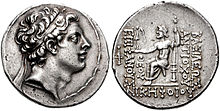January 5, 2016
Post #11
Dear Readers,
We are dedicated to the absolute co-equality and balance between men and women! Our premise is that God created us this way to be whole, complete, unified – as One, through one another, masculine and feminine. We are discussing how the Word of God as taught by Jesus of Nazareth was willfully or inadvertently misrepresented or misunderstood such that men came to believe they were somehow more equal.
This weblog, our pamphlets, study guides and other materials are inspired by Miguel’s book, The Word 2.0, a new biography of Jesus of Nazareth in his own words, based upon a single, unified timeline.
Whether or not you agree please “share” us with your friends, and be our “friend”!
You are reading one in a year-long series on the “Feminine-ist” teaching of Jesus of Nazareth.
~~~~~~~//~~~~~~~
God is One!
God is undifferentiated masculine and feminine energy in perfect balance, whole, complete, unified, and co-equal! God is neither male nor female, and yet both – inseparable! And yet God made each of us manifest male and female, man and woman, in God’s perfect likeness! Truly a state of grace.
How Adam’s actions brought about the fall from this state of grace is something we will discuss elsewhere. Suffice it to say that long before Jesus was born, men and women were already out of balance. In the more immediate sense of events which took place in Israel before Jesus was born, I found the Seleucid Greek invasion critically important because of the belief system we call “Hellenism” the Greeks forced on the children of Israel at that time.
It may not be especially well known today but the Seleucid Greeks from Syria outlawed our One True God! They forbade the worship of God under the penalty of death. Their King Antiochus IV Epiphanes (Antíochos D’ ho Epiphanḗs, “God Manifest”), believing he was god, decreed the people would have no other god before him.
Hellenism did cause divisions among the people though. On one hand identifying with the Greek empire and culture could enrich certain elite Israelites, but on the other hand their man-worship violated God’s Law. This divided not only those who were “Hellenists”, their supporters and adherents, from those who were “Traditionalists“, but also, apparently, men from women. Why? Because it is also in the nature of Hellenism that women be subordinate to men.
But our One True God was definitely not a Hellenist, right? Given that, Jesus was not a Hellenist – quite the opposite. We might characterize Jesus’ ministry as anti-Hellenist – teaching men in particular about the Divine Balance of God’s Feminine and Masculine aspects, specifically “Feminine-ism“. I briefly outline some basic principles of Jesus of Nazareth’s life and ministry, as they are revealed in “The Word 2.0”:
1. Jesus was a “Traditional” Hebrew-Jewish teacher and Rabbi – to say the very least!
2. Jesus was not a “Hellenist” in any sense of our understanding the word.
3. Jesus espoused and promoted that our One True God – the God of Israel, is a perfect co-equal balance of both masculine and feminine, as is reflected in all Creation.
4. Jesus said that we must love the Lord our God first and foremost, and then love one another as we love ourselves.
5. Jesus taught that love, beginning with God’s “Ruach HaKodesh” – the Breath of Life and Holy Spirit, as aspects of God’s Divine Feminine, is the only way that men can experience the Kingdom of God.
6. Jesus rejected the kind of egocentric, selfish, self-centered thinking and behavior of men that characterizes “Hellenism”.
We will discuss each of these points in much greater detail as we continue, and, look for my study guides they will soon also be available!
~~~~~~~//~~~~~~~
~~~~~~~//~~~~~~~
As we have been discussing, men’s treatment of women provides us the most useful insight into their frame of reference, be they Hellenist, or merely self-centered, or typically fearful, lacking faith in God’s plan, or something else. Not surprisingly which of these applies will produce a slightly different kind of fruit as well – fruit, as Jesus says, by which we will know these men. For today let’s juxtapose just two kinds of these men: Men like Jesus enjoyed the company of women, was a good listener, and never had a harsh or angry work with women, and those men who disparage, marginalize, and generally disrespect women.
In modern language we might call this latter kind of man “sexist”, among other things, and we would observe a range his behaviors towards women as outright hateful through condescending to perhaps mildly intolerant. As Hellenists they tend to see themselves not so much patronizing or insensitive as paternalistic. After all, being men, they know what’s best for everyone else. Being men, they are typically fearful. Like Adam, afraid their nakedness will reveal their shame publicly.
While some men would






